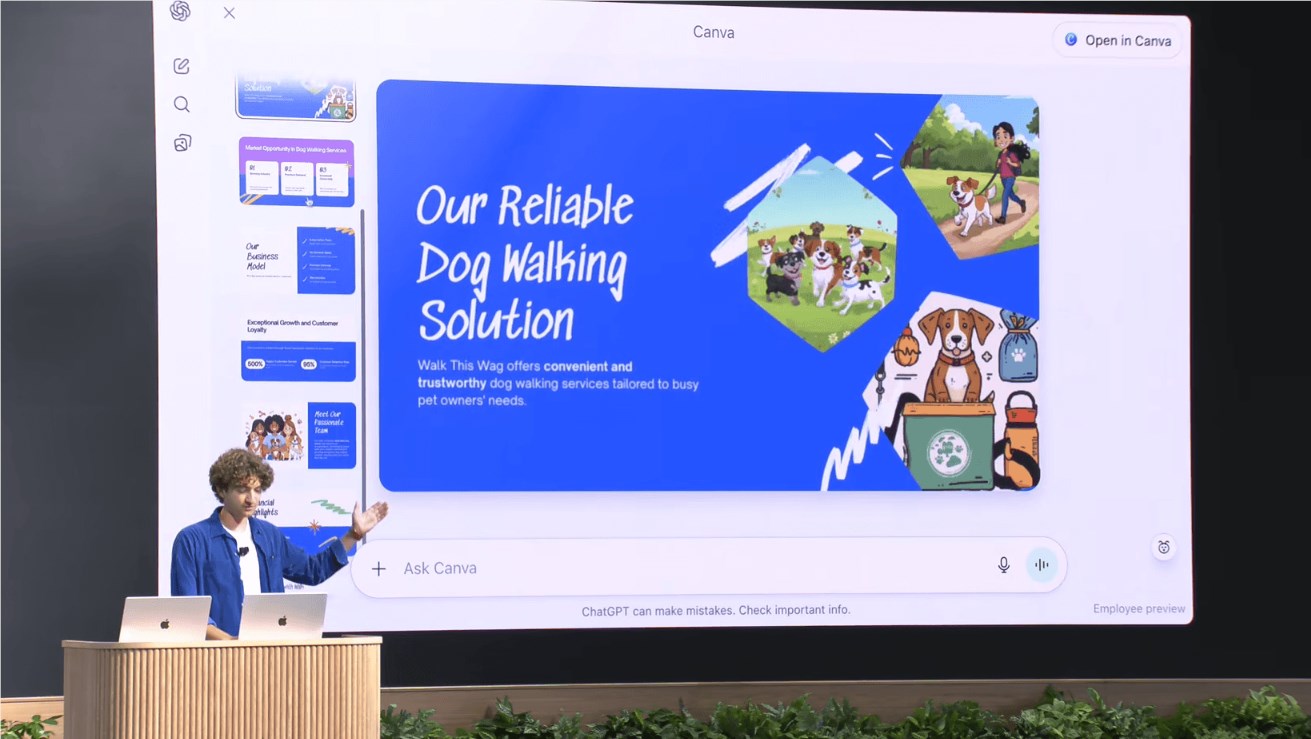This year at Developer Day (Dev Day), OpenAI announced a series of major releases aimed at reshaping its ecosystem, with the core focus on transforming ChatGPT into a deeply integrated third-party application platform, while empowering developers to build autonomous AI agents that can perform tasks on behalf of users.
The platformization of ChatGPT and the launch of the Apps SDK mark a significant shift. With the new Apps SDK, developers can now create interactive applications that run directly within the ChatGPT chat interface. These apps support full-screen mode and can pass context to the language model. The SDK is built on OpenAI's Model Component Protocol (MCP) and adds features such as HTML rendering, login, and payment protocols to deliver a complete app experience. In the demonstration, the Canva app showcased the ability to generate posters and presentations, while the Zillow app displayed interactive maps directly in the chat and responded to natural language filters like "only garden." Initial partners include Booking.com, Canva, Coursera, Expedia, Figma, Spotify, and Zillow, with DoorDash, OpenTable, Target, and Uber joining in the future. Developers can test apps in developer mode, and in the future, an app directory and paid options will be available. This SDK is expected to completely replace the old ChatGPT plugins.

At the same time, OpenAI is launching a toolkit called AgentKit for building autonomous agents that can perform tasks on behalf of users. Its core is the Agent Builder, a visual tool that allows users to assemble workflows through drag-and-drop operations. During a live demonstration, OpenAI built an agent for recommending meetings in just eight minutes and could publish it immediately. AgentKit also includes ChatKit for chatting, Evals for testing, and a Connector Registry for managing data access. Additionally, agents can be deeply customized through **Reinforcement Fine-Tuning (RFT)**, a feature currently in internal testing on GPT-5. The Agent Builder is currently in testing, while ChatKit and Evals have been officially released, and the Connector Registry is being promoted to API and enterprise customers.

On the model side, OpenAI has released the API for GPT-5Pro, its most advanced language model to date, designed for handling complex tasks. It uses more computing resources, accepts both text and image inputs (but only outputs text), supports an impressive 400,000 token context window, and allows up to 272,000 token output. This model is accessible only via the Responses API, with pricing at $15 per million input tokens and $120 per million output tokens, representing a significant increase in output costs compared to previous models. In addition, OpenAI has launched more cost-effective alternatives: gpt-realtime-mini (about 70% cheaper), gpt-image-1-mini (about 80% cheaper for image processing), and the Sora2 text-to-video model API.
Finally, OpenAI's coding assistant Codex is now generally available. Since its launch as a cloud proxy in May, usage has increased tenfold, and it has added Slack integration, SDKs, and new management tools. The company also revealed astonishing user data: ChatGPT has more than 800 million weekly users, over 4 million developers are developing on the platform, API traffic reaches 6 billion tokens per minute, and the platform ecosystem has seen significant growth.










